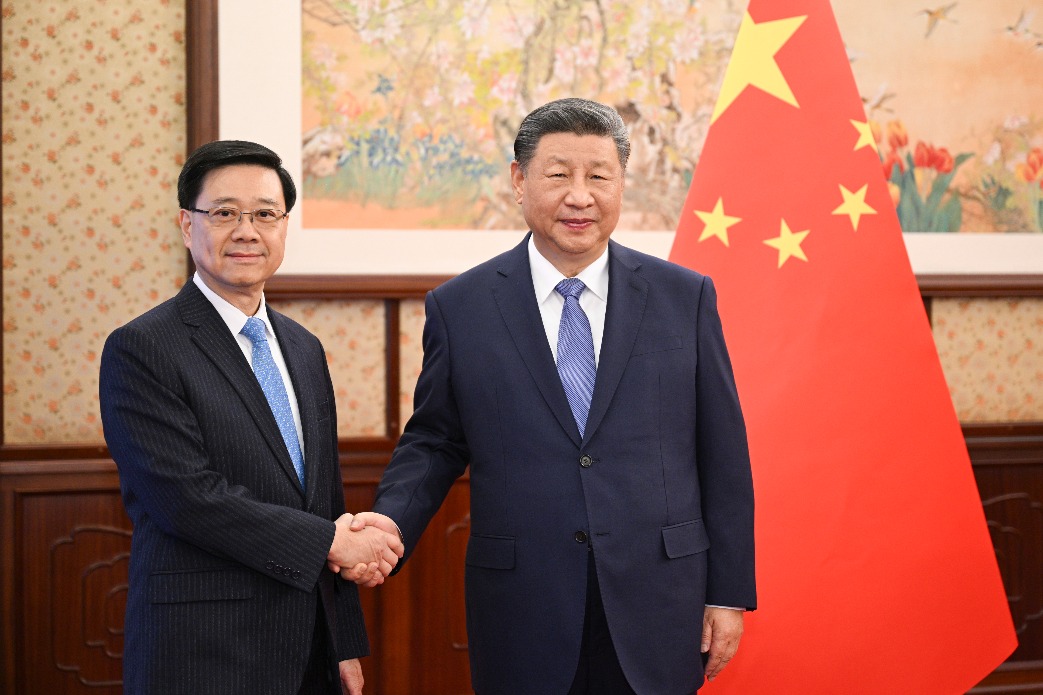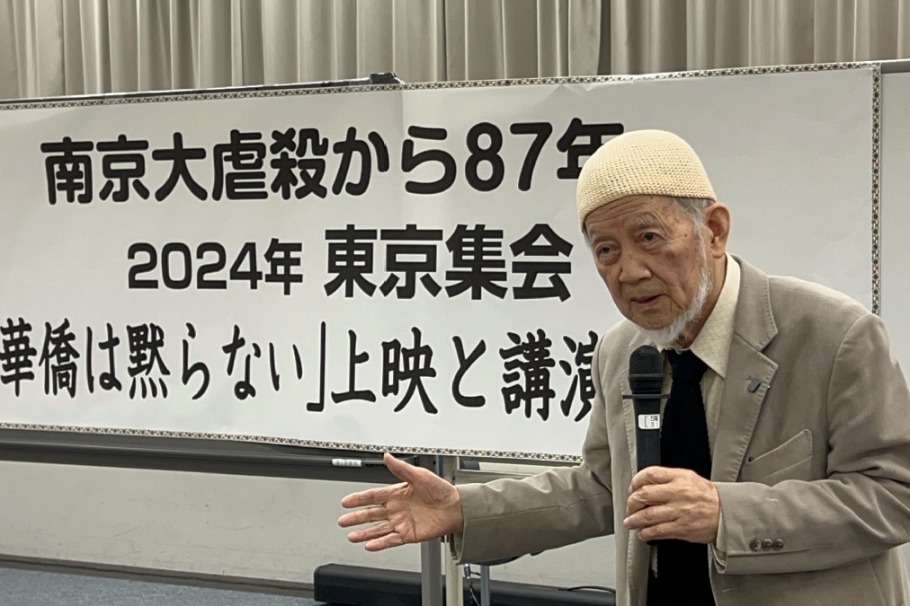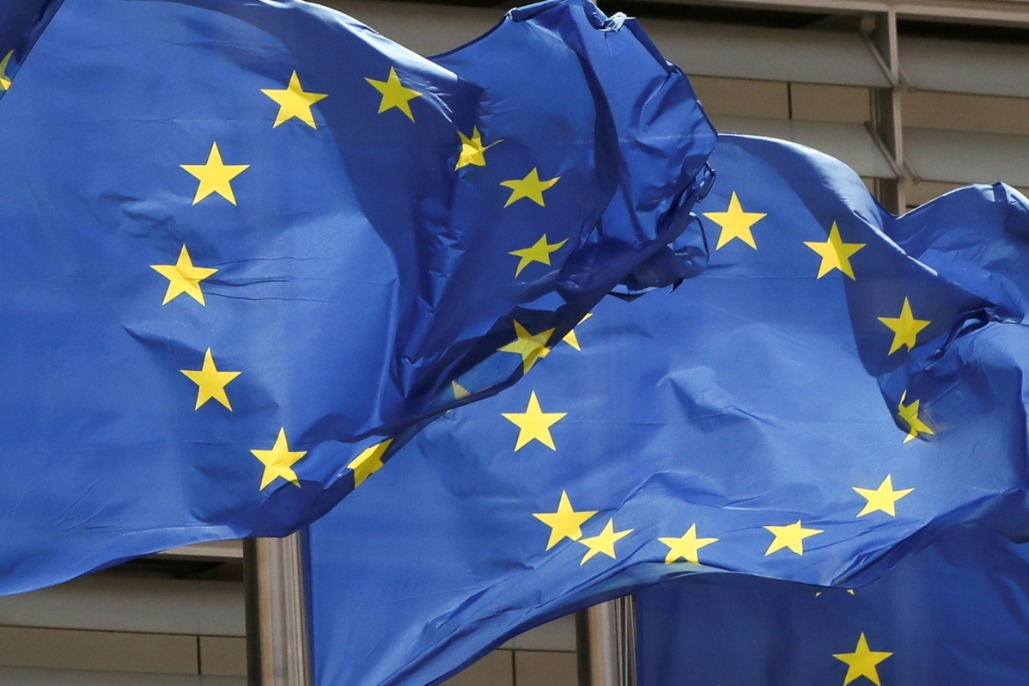Unlike US, China trying to resolve, not worsen Red Sea crisis


The United States Department of Defense said that Houthi forces in Yemen targeted two US Navy warships with multiple drones and missiles while sailing between the Red Sea and the Gulf of Aden on Nov 12. A week later, the US announced it was removing its USS Abraham Lincoln aircraft carrier strike group from the Middle East but would continue deploying heavy firepower in the form of F-16 and F-15 fighter jets and B-52 bombers in the region. The intensified Red Sea situation has once again attracted global attention.
The Red Sea crisis has been ongoing for a year. Although the US has been adopting tough measures, such as carrying out multiple joint air strikes with the United Kingdom against Houthi targets, the crisis has not been eased. Instead, the escalation in fighting is increasingly threatening global shipping. The world should urgently secure the Red Sea's future.
The crisis is not just about shipping security, but the spillover from a new round of the Palestine-Israel conflict. China has always believed that the fundamental solution to the Red Sea crisis lies in properly handling the Palestinian issue. It has stated on multiple international occasions that the Red Sea's situation is closely related to the Gaza conflict, and urged all parties to implement the United Nations Security Council resolution as soon as possible, immediately achieve a ceasefire in Gaza and cool tensions in the region.
Despite China's continued calls, however, a ceasefire deal is difficult. The US has repeatedly vetoed the UN Security Council's draft resolution on a Gaza ceasefire since the war began over a year ago. The US' long-term policy of favoring Israel has led to serious obstacles to ceasefire efforts or cooling down of the situation in the region.
China has repeatedly called on the US to take its responsibilities as a permanent member of the UN Security Council seriously, stop being passive and evasive and stop its deliberate procrastination. Instead, it should support the Security Council in taking all necessary actions to achieve an immediate ceasefire, save lives and restore peace.
Fu Cong, China's permanent representative to the UN, said at the UN Security Council Ministerial-level Briefing on the situation in the Middle East on Nov 18 that the Security Council has failed to effectively discharge its duties on the Palestinian question and has failed to respond to the expectations of the international community. It is the repeated exercising of its veto by the US and its continued provision of weapons that have made the war last for so long and caused massive destruction.
In fact, US military intervention has worsened the Red Sea crisis. Obviously, the US does not want to solve the problem although it ostensibly conducts military operations to ensure shipping security. In fact, the country strives to consolidate its geopolitical advantage and maintain its influence in the Red Sea region by attacking the Houthi, strengthening its military presence and controlling strategic channels.
On the contrary, China, which always opposes solving problems through military means, has been seeking political ways to solve the Palestinian question in order to fundamentally address the Israel-Palestine conflict and the spillover effect in the Red Sea, as well as secure long-term stability in the region.
For example, China has been promoting peaceful dialogue and consultation ever since the Red Sea crisis broke out last year. China is willing to play the role of mediator and constructive participant in regional crises and promote the resolution of disputes through dialogue.
China avoids forming cliques and tries to prevent the crisis from escalating. The country's stance on the Red Sea differs significantly from that of the US. China insists on resolving issues through dialogue and diplomacy rather than unilateral pressure, which can only intensify hostility and conflict among relevant parties. If countries take sides in the Red Sea region, it will not only worsen the already complicated situation, but may also widen the conflict, bringing greater risks to regional stability. For example, the US' action of asking China to "put pressure on Iran" reflects the West's single intention on the Middle East issue.
China advocates for increased humanitarian assistance and a commitment to help alleviate the dire humanitarian situation in Yemen. This initiative is not only a necessary measure to deal with the emergency in Yemen, but also the key to resolving the Red Sea crisis. Years of conflict and economic collapse have destabilized Yemen and further exacerbated security risks in the area. Therefore, the rapid provision of humanitarian aid can ease Yemen's plight, reduce the root causes of conflict and stabilize the regional situation.
Being one of the main shipping channels in the world, the Red Sea's security and stability have a direct bearing on the interests of coastal countries, the smooth flow of global trade and the healthy development of the world's economy. Amid the Red Sea crisis, China does not choose to stand idly by, but demonstrates its responsibility as a major country through practical actions.
China has repeatedly called for fundamental solutions to the problem and advocated for resolving the dispute through peaceful means. It has been insisting on not exerting pressure on others and stressing the importance of dialogue and consultation. Also, the country always calls for the implementation of humanitarian assistance and pays attention to the plight of civilians at risk.
China has always taken positive actions on the Red Sea issue, which not only demonstrates its attitude as a responsible major country, but also reflects its concept of transcending geopolitical competition and promoting regional stability with a pragmatic attitude. All of these are in stark contrast to the US practice of ignoring the root cause of the Red Sea crisis and taking military intervention to intensify local tensions.
The author is an associate researcher of the Institute of West-Asian and African Studies, Chinese Academy of Social Sciences.
The views don't necessarily represent those of China Daily.
If you have a specific expertise, or would like to share your thought about our stories, then send us your writings at opinion@chinadaily.com.cn, and comment@chinadaily.com.cn.


































